More school closures predicted for London
- Published
- comments
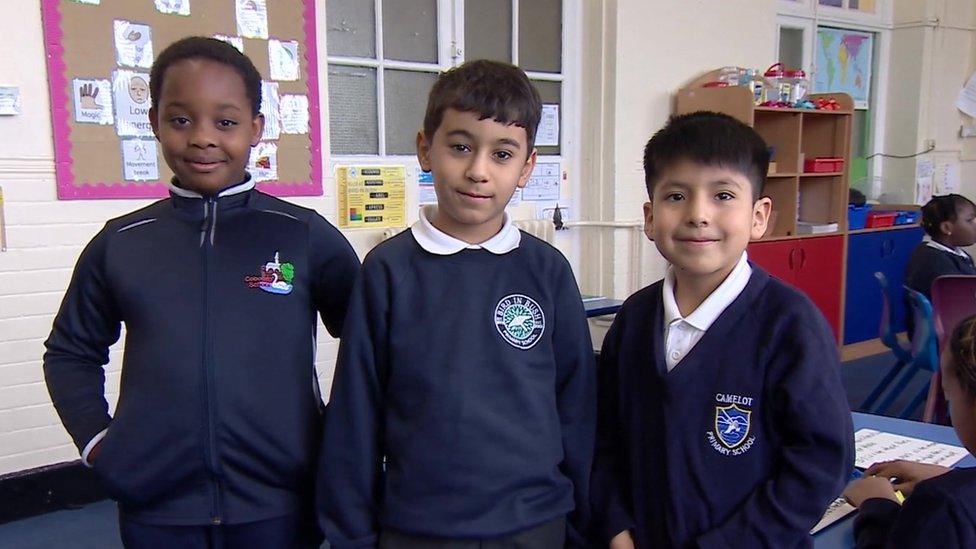
Bird in Bush School's students are from two other recently merged schools
Demand for school places in London is set to plummet as birth rates decrease, new data shows.
The capital is expecting a total drop in demand of about 7,900 places for the first years of primary and secondary over the next four years.
For primary this equates to a drop of some 128 classes and 134 for secondary.
In seven boroughs this forecast would amount to more than 10% of the school population - although four boroughs are predicted to see increased demand.
The analysis, by the cross-party council representative body London Councils, also shows that about a quarter of a council-run schools currently have a funding deficit.
Between 2012 and 2021, there was a 17% decrease in London's birth rate. House prices, the cost of living and the pandemic are all attributed as recent factors contributing to a population shift out of London, according to London Councils.
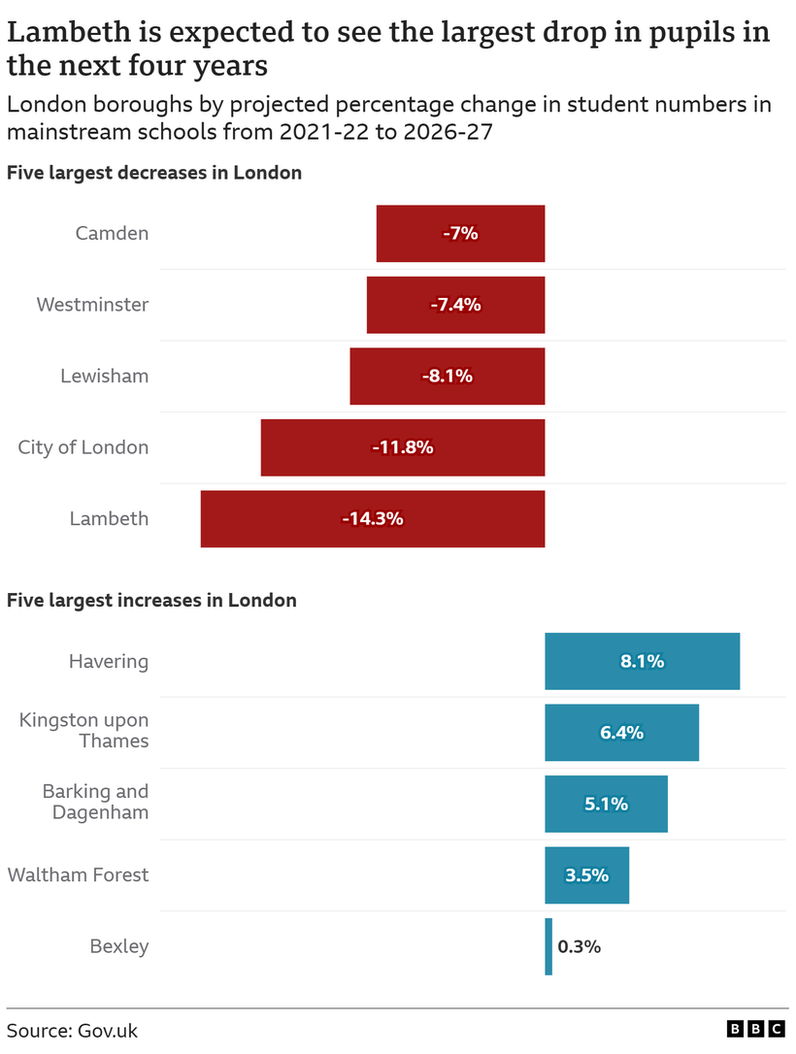
Predicted student numbers across mainstream state schools in London
For primary schools, they receive about £6,000 for each pupil. The fewer students, the less funding the school has for staff, curricula and materials.
The central boroughs are most acutely affected, as birth rates there continue to experience the most rapid fall in birth rates.
Hackney agreed to close or merge six primary schools in December, while Camden and Islington have seen several schools close in recent years.
Lambeth announced a plan detailing 4,000 fewer primary school places in the borough over seven years, and Southwark has earmarked at least 16 schools at risk.
In Southwark, Camelot School in Bush Road and Cobourg School in Cobourg Road have just merged to become Bird in Bush School, based on the Camelot premises.
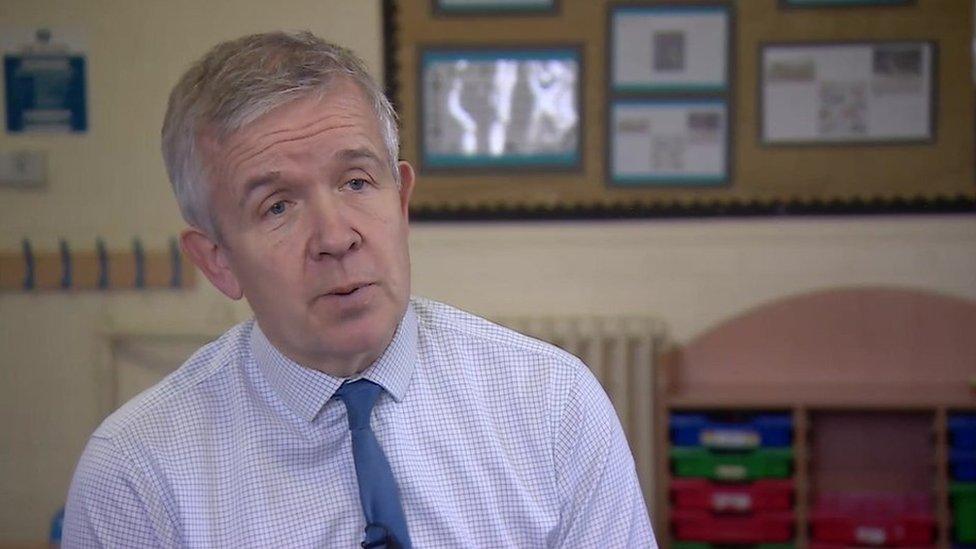
The head teacher of Bird in Bush School, James Robinson, said there were some positives to the merger
Head teacher James Robinson told BBC London: "The positive is that now we're running a school with surplus [budget] and this time last year we were running two schools with a deficit of over six figures each.
"The positive surplus brings opportunities in terms of provision for curriculum, staffing and leadership - mainly stability."

National Education Union branch secretary Andrew Dyer told BBC last year that the situation in Camden was "at a crisis point".
"It points to what Camden and other central boroughs may look like in the future and it's bleak. It used to be a borough full of creativity with life and families," he said.
"Young teachers also can't afford to live in the area as well, and when they hear about schools closing, taking a job in this borough is not an attractive prospect if it may close soon."
Mr Dyer added that "if state schools are to be attractive for teachers and families alike, they need assurance that their budgets are not going to be cut".
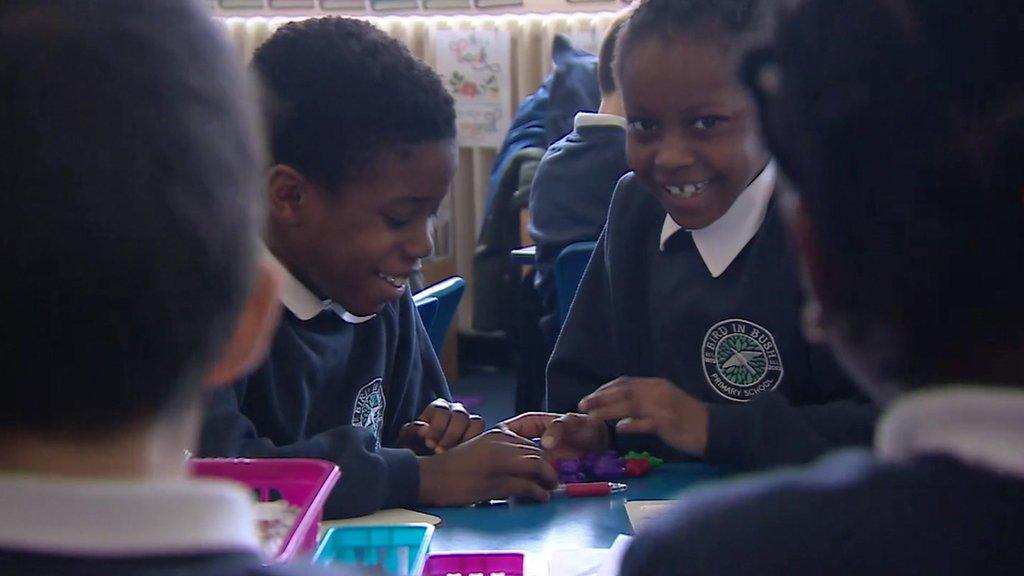
There are likely to be many more school closures and mergers across the capital
Ian Edwards, London Councils executive member for children and young people, said: "This report comes at a time when unfortunately some of our schools and local authorities are negotiating a complex balancing act. The drop in demand for places means schools face extremely difficult decisions over how to balance their budgets.
"London has some of the best schools in the country, with over 90% of all our schools being rated good or outstanding by Ofsted.
"We are working diligently to ensure that this level of high-quality education is accessible for all children entering schools in the coming years and allow our schools to thrive despite this difficult climate."

Listen to the best of BBC Radio London on Sounds and follow BBC London on Facebook, external, X, external and Instagram, external. Send your story ideas to hello.bbclondon@bbc.co.uk
- Published2 January 2024
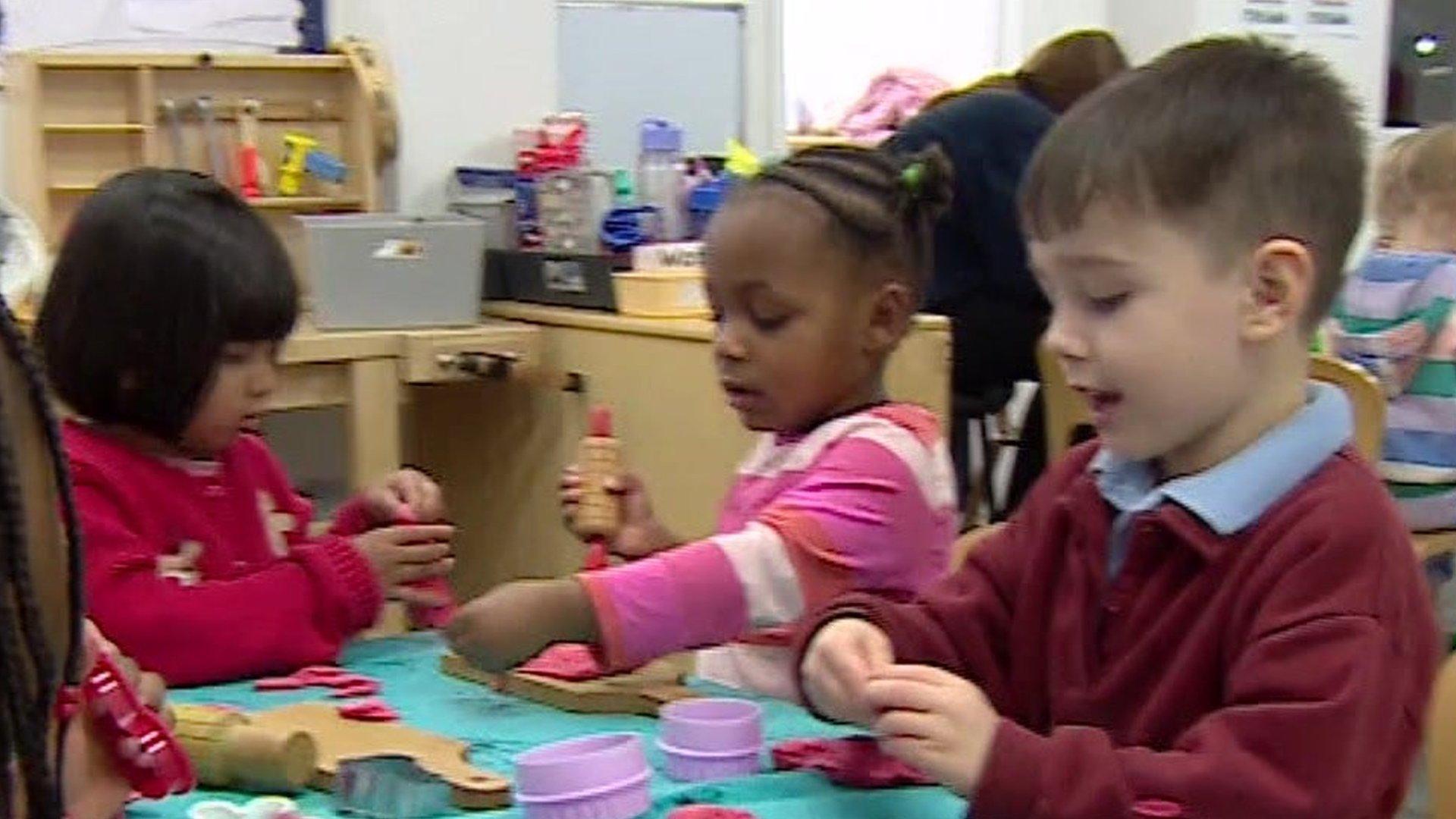
- Published4 May 2023